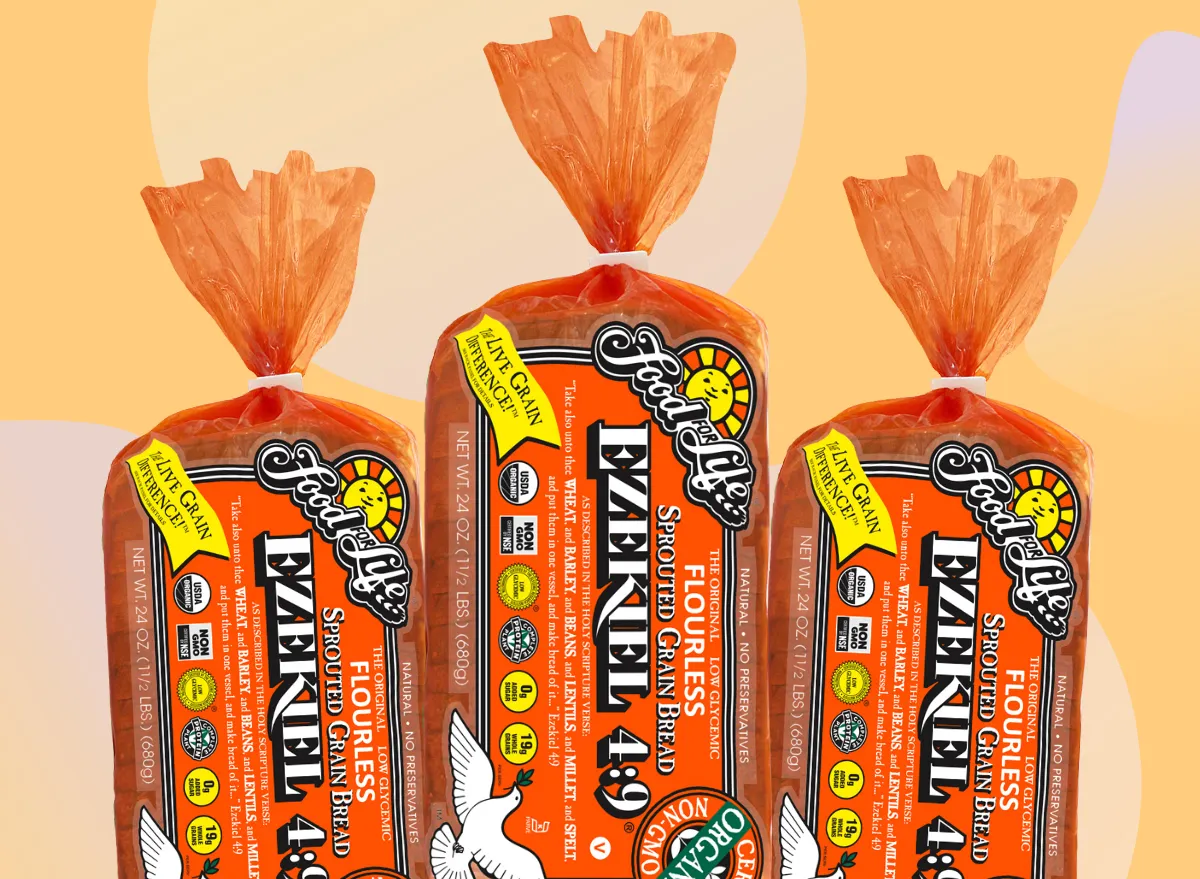Got a Minute extra for God?
Has anyone ever told you: יהוה (Yahweh) God loves you and has a great plan for your life?
Has anyone ever told you: יהוה (Yahweh) God loves you and has a great plan for your life?

Have you ever had Ezekiel Bread? Many people claim its health benefits over traditional bread, but is this really the wisdom of God for how bread should always be made? I think not, especially when you read the whole story found in Ezekiel 4. The so-called “Ezekiel Bread” is inspired by a verse in the Bible where God instructs the prophet Ezekiel to make bread using various grains and beans. While this bread has gained popularity for its nutritional benefits, understanding the biblical context reveals that it was never intended as a model for ideal bread-making, but rather as a symbol of hardship and scarcity.
The reference to Ezekiel Bread comes from Ezekiel 4:9, where God commands the prophet Ezekiel to make bread from wheat, barley, beans, lentils, millet, and spelt. This recipe was part of a prophetic act that symbolized the severe famine and suffering the people of Israel would endure during the siege of Jerusalem. Ezekiel was instructed to lie on his side for 390 days, representing the years of Israel’s sin, and eat this bread to demonstrate the scarcity and hardship that the people would face.
The bread was to be baked over cow dung (originally, it was to be baked over human dung, but God allowed Ezekiel to use cow dung instead), symbolizing the extreme conditions and defilement the people would experience. This context makes it clear that this was not a divine endorsement of a healthy diet but a vivid illustration of impending judgment and distress.
In the ancient Near East, bread was a staple of daily life, often made from wheat or barley. The use of multiple grains and legumes in Ezekiel’s bread indicated the desperation of using whatever was available due to famine conditions. Thus, Ezekiel Bread, as described in the Bible, is not about optimal nutrition but about survival in a time of crisis.
Here are key verses from the World English Bible (WEB) that provide insight into the context and meaning of Ezekiel Bread:
“Take for yourself also wheat, barley, beans, lentils, millet, and spelt, and put them in one vessel, and make bread of it for yourself. According to the number of the days that you will lie on your side, even three hundred and ninety days, you will eat of it.”
Explanation:
This verse details the ingredients for the bread Ezekiel was to eat during his symbolic act. The combination of grains and legumes represented the scarcity and compromised quality of food during a siege, not a recipe for a healthy diet.
“You shall eat it as barley cakes, and you shall bake it in their sight with dung that comes out of man. Yahweh said, ‘Even thus will the children of Israel eat their bread unclean, among the nations where I will drive them.'”
Explanation:
God’s instruction to bake the bread over dung highlights the symbolic defilement and dire circumstances that the Israelites would face. This bread was a picture of judgment and desperation, not divine culinary advice.
“He humbled you, allowed you to be hungry, and fed you with manna, which you didn’t know, neither did your fathers know; that he might teach you that man does not live by bread only, but man lives by every word that proceeds out of Yahweh’s mouth.”
Explanation:
This verse reminds us that God’s provision is about more than physical sustenance. While bread is important, God’s Word and His guidance are what truly sustain us. This perspective is crucial when considering the spiritual implications of Ezekiel’s bread.
One common misconception is that Ezekiel Bread, as described in the Bible, was meant to be a healthy, ideal diet. This is not the case; it was a symbol of famine and desperation. Another misunderstanding is that eating this bread today will somehow bring spiritual benefits or favor. While healthy eating is important, spiritual growth comes from following God’s Word and seeking His will, not from adhering to a specific diet.
It’s also important to note that the modern version of Ezekiel Bread, available in stores, is quite different from what Ezekiel ate. It is made with more care and intention to be nutritious, rather than as a last resort during famine.
Understanding the context of Ezekiel Bread has practical implications for our daily lives:
Ezekiel Bread, as described in the Bible, is a powerful symbol of God’s message to His people during a time of judgment. While the modern version of this bread can be a nutritious addition to your diet, it’s important to understand its biblical context and not elevate it as a divinely endorsed health food. God’s desire is for us to live in a way that honors Him, not just in our physical health but in every aspect of our lives.
Let this understanding of Ezekiel Bread encourage you to love what God loves—truth, obedience, and trust in His provision—and to hate what He hates—misuse of His Word, self-reliance, and superficial spirituality. As you make choices about your diet and lifestyle, seek to do so with wisdom and discernment, always remembering that true nourishment comes from every word that proceeds from the mouth of God.
Add your first comment to this post